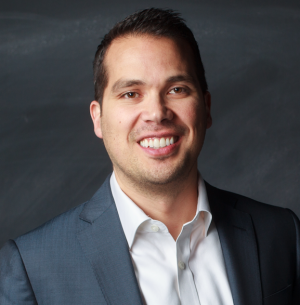For most lawyers, they have a goal in mind before they even take their LSAT: making partner at a firm. Making partner at a prestigious firm is the gold standard achievement for a young attorney looking to signal to the world that they’ve arrived. For many, the day they made partner felt like the day their practice of law truly began.
But partnership ain’t what it used to be. Making the transition from associate to partner in today’s legal market usually means new business cards, a press release, maybe an upgraded office. It almost certainly means a slew of new mandatory meetings and committee assignments. But at firms across the globe, it rarely means taking a share of ownership in the business.
What’s in a Name?
Most Biglaw firms have switched to a two-tier — or more — system of partnership. At the top of the system are the equity partners, the ones who take the firm’s leftover profits at the end of the year. The equity partners are generally the rainmakers of the firm, the profit-generators with the big books of business and working attorney collections. They’re also the ones who shoulder much of the firm’s heavy business lifting, generally waiting for payment until the end of the year, signing personal guarantees, and otherwise bearing the risk of loss.
Then there are nonequity partners. Some of these are young partners building their books, on their way to the equity ranks. Others are talented attorneys without significant books of their own, but whose work commands enough respect to merit calling them a partner. Still others are former equity partners who may be winding down their careers or working part time.
Despite the similar titles, there can be a world of difference between the tiers. Aside from the economics, some firms have cultures where nonequity partners are treated as second-class citizens — excluded from key meetings, not given access to key financial information, and not granted voting rights. This cultural divide is not always the case, and the firm I work at has gone to great lengths not to draw distinctions between its equity and nonequity ranks. But lawyers notoriously love hierarchy, and I suspect that our firm is probably more the exception than the rule on this point.
A Model Created by the Great Recession
The concept of nonequity partnership is nothing new, but it truly came to prominence in the wake of the Great Recession. As firm revenues fell and competition became increasingly cutthroat, rainmakers became more valuable than ever. The overall pie was shrinking, so firms, desperate for revenue, took extreme steps to keep business generators or attract new ones. Once the first firm made the move, others had to follow to avoid being raided by firms willing to throw gobs of money at lawyers with big books of business.
You can’t have a redistribution of wealth without someone going hungry. The way most firms came up with the premiums to pay the rainmakers was to shrink their equity ranks. If you divvy up the same profits with a smaller number of people, each person gets more. To accomplish this, some firms stripped equity from partners who were underperforming, or just not performing as well as the others. Still others dramatically cut back on the number of lawyers they promoted to the equity ranks. But most employed some combination of both changes, quickly realigning their partner ratios and profit distribution.
No matter how correct the decision to reallocate equity might be from an economic and competitive standpoint, it’s an unavoidably ugly process. It’s no secret that lawyers have big egos and that many, if not most, are driven by status. Almost by definition, these equity concentration moves have winners and losers. And when someone isn’t able to proudly wear the equity badge, they will often have a difficult time accepting it. From the outside, and even perhaps from within, it can look like the haves are getting greedy at the expense of the have-nots.
A Necessary Evil?
Trust me, I get why many disdain the two-tier structure. Why can’t firms just be more egalitarian, inviting everyone into the equity ranks to work together for the common good of the firm? There’s a real part of me that wishes this model could exist. But I also wish I could fly and shoot laser beams out of my eyes. In both cases, my wishes don’t matter. In the case of flying, gravitational forces keep me grounded. In the case of a single-tier system, market forces have dictated how firms need to adapt.
The truth is prudent firms do not have a real choice when it comes to whether or not they need to follow the market trend of embracing a two-tiered system. Like it or not, firms that fail to make their rainmakers happy will pay a high price. One of the chief problems defunct LeClairRyan faced in the years leading up to its spectacular collapse was its failure to de-equitize non-producing partners. That left the firm’s actual rainmakers feeling like they were subsidizing a favored few, which primed them to be poached by the competition. Those rainmakers then left, and the firm collapsed on itself.
But wait. What about firms like Cravath, which has a single partnership tier and seems to be doing just fine — consistently topping the Am Law profits-per-partner charts? Doesn’t Cravath’s success prove that a firm can thrive without having to adopt a two-tier system? In a word, no. Cravath has a unique brand that allows it to command market-topping rates that immunize it to the market pressures that most firms face. In fact, the Cravath model is even more draconian than the two-tiered approach. The stats tell the story. Cravath has 500+ lawyers, only 83 of whom are partners. So rather than pushing quality lawyers into nonequity ranks, Cravath refuses to even nominally promote any but the best of the best. Ouch.
Biglaw’s Challenge
The challenge for Biglaw management is how to keep both the firm’s biggest earners and its developing prospects content. Efficiently allocating the equity pool is an essential component of this process, but it cannot be the final word. Biglaw needs to understand and leverage the non-monetary benefits it can provide its partnership. There’s almost always going to be someone willing to pay more for any given partner’s book, but if that partner is getting paid decently in addition to receiving support they couldn’t get anywhere else, dislodging them is going to be a tricky task.
The path to equity partnership is a long one, and it’s only getting longer. Good managers will try to get their colleagues to the end of that path. Great managers will get those colleagues to enjoy the journey.

James Goodnow
James Goodnow is an attorney, commentator, and Above the Law columnist. He is a graduate of Harvard Law School and is the managing partner of NLJ 250 firm Fennemore Craig. He is the co-author of Motivating Millennials, which hit number one on Amazon in the business management new release category. As a practitioner, he and his colleagues created a tech-based plaintiffs’ practice and business model. You can connect with James on Twitter (@JamesGoodnow) or by emailing him at James@JamesGoodnow.com.






















 Kathryn Rubino is a Senior Editor at Above the Law, and host of
Kathryn Rubino is a Senior Editor at Above the Law, and host of